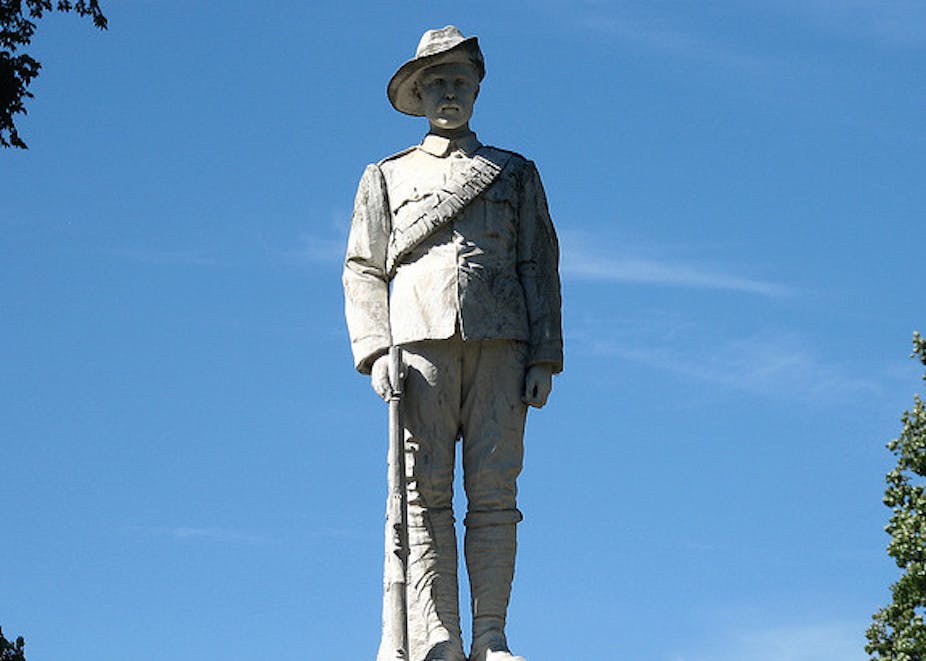Local history is one of the most popular forms of history in Australia. Yet there is a yawning gap between the enthusiastic amateur and the academic historian.
While some academic historians engage with local history, sadly there is an entrenched snobbery from the academy. From the other side, the enthusiastic amateur is too wound up with a parochial approach to local history and often doesn’t see the bigger picture.
If both sides can engage with each other, the result would be a better type of history practise and a greater contribution to the story of Australia.
Democratic history
Local history is one of the democratic forms of history practice, drawing on a variety of disciplines. These include community history, family history, genealogy and oral history. It also incorporates local aspects of cultural and social history. Done well, local history also engages in both national and transnational themes.
There is a host of local history societies and local museums across the country. But academic historians are rarely involved with them.
For the enthusiastic amateur of local history, the academic historian is in a different world. Academics are often at a city-based university. Their journals are remote, guarded by a peer-review process. And their conferences beyond the resources of the amateur.
This world is not readily entered by the amateur who, unlike professional historians who receive a regular salary, are volunteers with limited means.
Expert history
One of the key issues the divides these two groups revolves around the idea of authority. The university-trained historian has expertise based on the rigour and discipline of thought and word. The local history enthusiast often has only the lived experience of the past.
Keen amateurs have their own historical sensibilities and history mindedness. This often means they are interested solely in the affairs of their community. Sometimes they are the custodian of the stories of a place. That is, they are the keepers of the community’s sacred knowledge. The collective memory and cultural traditions of a local community.
As a collector of stories, the amateur practises a form of antiquarianism often concerned with lists of facts. Unfortunately this provides no commentary on the past or present, no argument, and no analysis of sources and assessment of methods.
Dealing with the past without interpretation and context is a source of continuing frustration for academics.
Arrogance and cynicism
Some academic historians think they are the only ones with the keys to the past. This is a form of professional arrogance. It creates a perception of aloofness.
This creates a cynical attitude amongst enthusiastic amateurs. Many feel that the academic historian is remote and distant. Amateurs therefore have little time or enthusiasm for academics.
Yet it need not be so.
The academic historian has so much to offer. Successful and meaningful engagement is possible.
The academic historian is the discipline expert. They therefore have a responsibility to provide leadership. They should inspire amateur historians to increase their standards of scholarship. This needs understanding, trust and encouragement from academics. Not paternalism.
Academic and amateur alike need a nuanced understanding of the needs and aspirations of both sides. Academic historians can act as mentors in the practice of local history. Enthusiast amateurs are keen to learn how to do it better, if given sympathy and understanding.
Even the crudest attempt by the local history enthusiast provides in their own way an archive which the thoughtful, patient and persistent academic can mine. And likewise even the densest writing by academics offers something to the amateur.
A recipe for success
Successful engagement between academic historians and the enthusiastic amateur is a win-win situation for both sides.
Some examples include the ever popular annual Penrith Local History Conference, community history projects such as the Dictionary of Sydney and the recent Crime, Cameras Action! local history conference at the University of Wollongong.
There are many good examples of local history as written by academic historians, including Atkinson’s Camden, Ferry’s Colonial Armidale and McQuilton’s Rural Australian and the Great War.
A number of academic historians give popular public lectures and seminars in Sydney at History House, the Mechanics Institute, the State Library, Powerhouse Museum and other venues.
Some historical societies are even able to bridge the gap. They provide a stimulating environment that interests academic historians.
Joint projects and activities can strengthen community connections and social cohesion. The social connections created by local history increase the meaning, purpose and satisfaction in people’s lives.
Local history can build community resilience and break down social exclusion especially in communities under pressure. Some are found on the edges of our large cities, while others in remote and regional Australia.
The practice of local history has a lot to gain from the successful interaction between academic and amateur historians.

